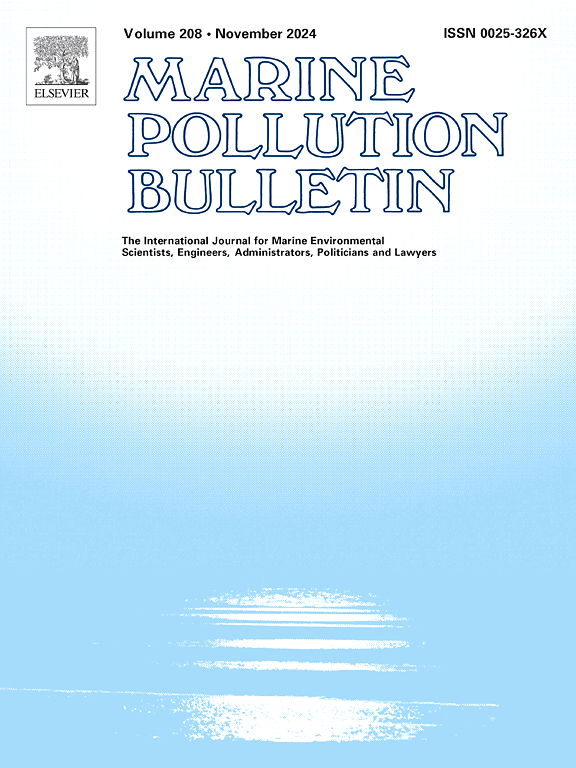在海洋热浪中,氮的富集决定了珊瑚的死亡率。
IF 4.9
3区 环境科学与生态学
Q1 ENVIRONMENTAL SCIENCES
引用次数: 0
摘要
气候变化正在杀死世界范围内的基础物种,了解当地环境条件如何与变化的气候条件相互作用是生态学的主要目标。在珊瑚礁上,海洋热浪导致珊瑚因白化而死亡,海洋热浪的影响可能会被无机营养物质所改变。在这里,我们表明,在Moorea,法属波利尼西亚强烈的海洋热浪之后,两属分支珊瑚的死亡模式是热应激和氮富集的复杂函数。珊瑚死亡率的两个指标(流行度:至少部分死亡的珊瑚群的比例;严重性:死亡的珊瑚群的比例)在Acropora珊瑚中比Pocillopora珊瑚更大。对鹿角虫来说,氮富集与热胁迫强度相互作用,影响其死亡率的普遍程度,但不影响其严重程度。富氮程度越高,低热胁迫下患病率越低,高热胁迫下患病率越高。相反,对于poillopora来说,氮与热应激相互作用改变了死亡率的严重程度,而不是普遍程度。在低热胁迫下,氮富集增加了植物的严重程度,但随着热胁迫的增加,这种影响逐渐减弱。我们的工作表明,氮富集可以减轻或加剧海洋热浪造成的珊瑚死亡,这取决于热应激强度和所涉及的分类群。本文章由计算机程序翻译,如有差异,请以英文原文为准。
Nitrogen enrichment determines coral mortality during a marine heatwave
Climate change is killing foundation species worldwide and understanding how local environmental conditions interact with changing climatic conditions is a major goal in ecology. On coral reefs, marine heatwaves cause coral to die from bleaching, with the effects of marine heatwaves potentially modified by inorganic nutrients. Here we show that following an intense marine heatwave in Moorea, French Polynesia, patterns of mortality in two genera of branching coral are complex functions of heat stress and nitrogen enrichment. Two metrics of coral mortality (Prevalence: the proportion of colonies with at least some partial mortality; Severity: the proportion of a colony that died for those that exhibited mortality) were greater among Acropora than Pocillopora corals. For Acropora, nitrogen enrichment interacted with the intensity of heat stress to influence the prevalence, but not severity, of mortality. Greater nitrogen enrichment reduced prevalence at low heat stress, but increased it at high heat stress. Conversely, for Pocillopora, nitrogen interacted with heat stress to alter the severity, but not prevalence, of mortality. At low heat stress, nitrogen enrichment increased severity, but this effect declined as heat stress increased. Our work shows that nitrogen enrichment can either mitigate or exacerbate coral death from marine heatwaves depending on heat stress intensity and the taxa involved.
求助全文
通过发布文献求助,成功后即可免费获取论文全文。
去求助
来源期刊

Marine pollution bulletin
环境科学-海洋与淡水生物学
CiteScore
10.20
自引率
15.50%
发文量
1077
审稿时长
68 days
期刊介绍:
Marine Pollution Bulletin is concerned with the rational use of maritime and marine resources in estuaries, the seas and oceans, as well as with documenting marine pollution and introducing new forms of measurement and analysis. A wide range of topics are discussed as news, comment, reviews and research reports, not only on effluent disposal and pollution control, but also on the management, economic aspects and protection of the marine environment in general.
 求助内容:
求助内容: 应助结果提醒方式:
应助结果提醒方式:


